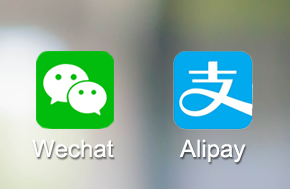-
- Close
-
Property
-
Services
-
Living in Shanghai
-
About US
 China is a country of wonder. Depending on which province you move to, you'll encounter a different experience. For example, the international cities of Beijing, Shanghai, and Shenzhen contain individuals who speak English quite well, but keep in mind that there still remains a large percentage of citizens who know little to know English -- this holds further true for rural areas.
China is a country of wonder. Depending on which province you move to, you'll encounter a different experience. For example, the international cities of Beijing, Shanghai, and Shenzhen contain individuals who speak English quite well, but keep in mind that there still remains a large percentage of citizens who know little to know English -- this holds further true for rural areas.
Keep in mind that there are regional groups and dialects of the Chinese language, with the most common being Mandarin, followed by Wu, Yue, Min, and Cantonese (mostly used in Guangdong province, Hong Kong, and Macau). It's true that if you learn Mandarin Chinese, you'll be able to speak to the majority of Chinese citizens. However, it would be nearly impossible to communicate with those who solely speak the other four variations.
 An interesting fact is that the country operates with only one time zone, Beijing time. So regardless of where you travel to in China, it'll always be the same time. And since we're speaking about travel, we'll talk about taxis; be sure to take an official metered taxi or you run the risk of paying more than the average fare. If interested in visiting Hong Kong (left), you'll need to get a multiple entry visa to go to and from the Mainland.
An interesting fact is that the country operates with only one time zone, Beijing time. So regardless of where you travel to in China, it'll always be the same time. And since we're speaking about travel, we'll talk about taxis; be sure to take an official metered taxi or you run the risk of paying more than the average fare. If interested in visiting Hong Kong (left), you'll need to get a multiple entry visa to go to and from the Mainland.
 Due to the sensitive nature regarding the political matters in China, it may be best to avoid discussing topics revolving around Tibet, Taiwan, or internet censorship. Speaking of, if you intend to visit websites that are commonly used in the West, you'll need to get a VPN to gain access to sites such as Facebook, YouTube, Instagram, and alike. Alternatively, this can also give you the opportunity to utilize the social networks that Chinese citizens use in order to make your transition to China more integrated, such as Sina Weibo (compared to Twitter), Renren (compared to Facebook), and Wechat (the mobile network that can't quite be compared to anything in the West).
Due to the sensitive nature regarding the political matters in China, it may be best to avoid discussing topics revolving around Tibet, Taiwan, or internet censorship. Speaking of, if you intend to visit websites that are commonly used in the West, you'll need to get a VPN to gain access to sites such as Facebook, YouTube, Instagram, and alike. Alternatively, this can also give you the opportunity to utilize the social networks that Chinese citizens use in order to make your transition to China more integrated, such as Sina Weibo (compared to Twitter), Renren (compared to Facebook), and Wechat (the mobile network that can't quite be compared to anything in the West).
To ease your transition to China, it's recommended to join the expat communities, especially within the bigger cities of China. As for "shocking matters", be prepared to witness, and potentially use, an actual squat toilet. Many places in the bigger cities will have western toilets, however squat toilets are still around. Also be prepared to experience the vast amount of lines and traffic in China. With over 1 billion people it shouldn't be a surprise, but it's an adjustment that will serve best when known ahead of time.
Keep in mind that none of these differences can be labeled right or wrong, but rather a difference in culture, politics, and perspective. Thus, it'd be best to go to China with an open mind and see what it has to offer, rather than a closed mind that misses out. The best advice that can be given is to realize that no matter how much research you conduct about China, you will inevitably encounter new insights, situations, and cultural differences that will marvel you. Expect the unexpected.